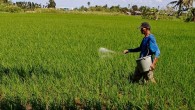Rice is, arguably, the world’s most important food crop. In spite of this prominence, the private sector for many years concentrated only on developing rice crop protection products such as herbicides and insecticides. There was little investment in improving rice varieties, and low participation in the crop seed business. In the mid-1990s, however, several agricultural...
Tag Archives: sustainable agriculture
The genebanks of the Consultative Group on International Agricultural Research (CGIAR) are often portrayed in the popular press as villains, the archetypical biopirates who steal huge amounts of biodiversity from their rightful owners and ride roughshod over the rights of poor farmers. At the same time the genebanks are often portrayed as heroes, the saviors of biodiversity...
Perhaps surprisingly, farmers do not perform most of the labor on rice farms in South and Southeast Asia. In the Philippines and on the Indonesian island of Java, for example, rice farm families work on average less than 40 days per year on the fundamental tasks of growing rice. If both husband and wife share this labor, each averages 13 hours per month. This is good...
Discussion of the system of rice intensification (SRI) is unfortunate because it implies SRI merits serious consideration. SRI does not deserve such attention. A multinational team has shown from both theoretical evaluations and a number of experimental tests that SRI offers no yield advantage. Significantly, these results by Sheehy et al. were published in Field Crops...













